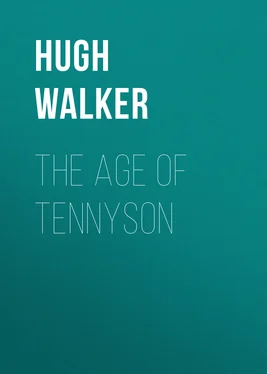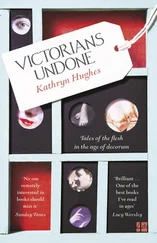Hugh Walker - The Age of Tennyson
Здесь есть возможность читать онлайн «Hugh Walker - The Age of Tennyson» — ознакомительный отрывок электронной книги совершенно бесплатно, а после прочтения отрывка купить полную версию. В некоторых случаях можно слушать аудио, скачать через торрент в формате fb2 и присутствует краткое содержание. Жанр: foreign_antique, Критика, literature_19, на английском языке. Описание произведения, (предисловие) а так же отзывы посетителей доступны на портале библиотеки ЛибКат.
- Название:The Age of Tennyson
- Автор:
- Жанр:
- Год:неизвестен
- ISBN:нет данных
- Рейтинг книги:5 / 5. Голосов: 1
-
Избранное:Добавить в избранное
- Отзывы:
-
Ваша оценка:
- 100
- 1
- 2
- 3
- 4
- 5
The Age of Tennyson: краткое содержание, описание и аннотация
Предлагаем к чтению аннотацию, описание, краткое содержание или предисловие (зависит от того, что написал сам автор книги «The Age of Tennyson»). Если вы не нашли необходимую информацию о книге — напишите в комментариях, мы постараемся отыскать её.
The Age of Tennyson — читать онлайн ознакомительный отрывок
Ниже представлен текст книги, разбитый по страницам. Система сохранения места последней прочитанной страницы, позволяет с удобством читать онлайн бесплатно книгу «The Age of Tennyson», без необходимости каждый раз заново искать на чём Вы остановились. Поставьте закладку, и сможете в любой момент перейти на страницу, на которой закончили чтение.
Интервал:
Закладка:
It was through these barriers, the barriers of an original and not infrequently eccentric genius, and of a personality strange and uncouth to the majority of his readers, that Carlyle had to fight his way to fame. It is true that at first the uncouthness and eccentricity were less prominent. The style of his earliest writings—the Life of Schiller for example—is simple and almost limpid; the arrangement is orderly, the development obeys the rules of a logic easily comprehended. But Carlyle speedily worked his way out of this style, and seldom used it afterwards. Sartor Resartus , the great product of the Craigenputtock period, presents all his peculiarities in their most aggressive form. Partly in fact, but still more in appearance, it is lawless and chaotic. Its style, difficult even now to a generation accustomed to and partly formed by Carlyle, was then unparalleled and, except after serious study, almost incomprehensible. It is full of evidences of German studies, German sympathies, and the influence of German thought. Carlyle has done more than anyone else to make these familiar in England; but before Sartor was published almost the only interpreters of Germany to England were men like Coleridge and De Quincey, who not only made the form English, but gave an English stamp to the matter as well. Sartor , moreover, was full of a humour deep and genuine but unfamiliar in kind, and, as regards the first impression produced, almost sardonic in character. Its subject was not calculated to arrest immediate attention. It was not the history of a nation or of a national hero. What it actually was could not be immediately perceived; but after bestowing some attention the reader discovered it to be the spiritual biography of a man then unknown, and his thoughts on human life and human society, presented humorously, whimsically, often enigmatically. It is not therefore altogether matter for wonder that this strange book with difficulty found a publisher, nor even that it threatened with ruin the magazine which at last received it. America, more tolerant of novelties, to her honour welcomed it; but in England the current opinion seems to have been expressed by the ‘oldest subscriber,’ who said to Fraser, ‘If there is any more of that d–d stuff, I will, etc., etc.’ We frequently boast of our progress. Is it certain that even now a phenomenon as strange as Sartor would meet with any better reception? John Stuart Mill, a man as open-minded as he was intelligent, for a long time saw nothing in Carlyle’s early essays but ‘insane rhapsody;’ and, though he was afterwards one of the warmest panegyrists of Sartor , which he thought Carlyle’s greatest work, he read the manuscript unmoved. Not once nor twice, either in this island’s story or in the history of the world, has the prophet been rejected by the generation he was sent to serve. Rather, rejection has been the general fate of prophets ever since the time when the children of Israel rebelled against Moses in the wilderness.
What redeemed Sartor in the eyes of those who had the patience to study it, was the discovery that the inner history of this unknown man had, in the first place, the interest which always belongs to human experiences told with absolute sincerity. For though Sartor contains little or no truth of fact, it is wholly true in idea. Carlyle, now as always, was intolerant of the very shadow of falsehood; and it was to his unswerving truth that he ultimately owed the greater part of his influence.
In the second place, the small band of careful readers discovered that Sartor was not only true and sincere, but that its truth was capable of an immediate and practical application. It was not something applicable only to a distant past or to another state of existence; its sphere was here and now. This is characteristic of Carlyle in all his works. He was always in intention, and generally in effect, the teacher first of his own generation, and secondly of the future. His interest in ancient history and literature was comparatively feeble, because he saw not how to bring them to bear so directly on the present. It was modern England, France and Germany, rather than ancient Greece and Rome, that nourished his mind. And for this reason, though his influence was of slow growth, it was deep rooted when it did spring.
Sartor Resartus is peculiarly important because of its chronological position. We have seen in the Introduction that the failure of the revolutionary ideal gives to the new period its most prominent characteristic. ‘The gospel according to Jean Jacques’ was accepted no longer. Sartor may be called a grim sort of gospel according to Thomas Carlyle. Carlyle himself had written before this; Macaulay had begun his brilliant career; among the poets, Tennyson, Browning and Elizabeth Barrett had published their earlier works; but Sartor is the first great book which faces the difficulties, and, in a way, embodies the aspirations of the new period. Its grimness no one will dispute. It is also a gospel, because the Everlasting No is routed, and under all the enigmas there is the promise of success and, if not Happiness, Blessedness, in work. It deals with quite a surprising range of modern problems. All the principal social, political and religious questions of the century are treated in greater or less detail. Carlyle’s attitude towards economic and other science, his views on religion, the outline of his opinions as to the position and proper treatment of the poor, his conviction of the need of a better and stronger government, may all be seen in Sartor . He expanded greatly and illustrated in his later writings, but he did not add much. Sartor is his most original and probably his greatest work. It is peculiarly interesting to notice that in it the central point of his creed is the need of reconstruction. Religion must be reconstructed: the ‘Hebrew old-clothes’ have had their day and will serve for human garments no longer. But this is equally true of the tailoring of the French Revolution: society itself has to be reconstructed. And the reconstruction, in Carlyle’s view, is a complex task. The salvation of mankind must be sought by the positive, not by the negative method. The way will be long and difficult, not short and simple as the Revolutionists supposed. Neither will any amount of political machinery suffice. Not by majorities, however numerous, nor by ballot-boxes, however ingenious, can sound government be carried on, but only by something which goes to the root of character. Carlyle, writing in the midst of a great agitation for improvement in political machinery, merely looks on in contemptuous indifference, convinced that at least the true solution lies not there. He was too contemptuous, for the true solution lies not in any one thing but in the union of many, and of these political machinery is one.
Carlyle was not the only writer of this period who gave thought to such problems, nor the only one who appreciated their complexity, but it was he who first adequately expressed them; and it is Sartor Resartus , written in solitude on the Dumfriesshire moors, that summons the crowds of modern cities to face and solve them. If the voice is the voice of one crying in the wilderness, it is addressed to the multitudes of human society wherever they are gathered together.
The principle at the root of all Carlyle’s other works is the same. It has been already pointed out how his own character forms, as it were, a background even to his histories. As that character had been built up in the struggle with, and continued to be absorbed in the contemplation of, those problems, it follows that the histories are just the presentation of the same problems under the wider and more varied conditions of national existence. There was artistic gain to Carlyle in the new conditions. A longer dwelling in the regions of Sartor would have fed the morbid blood in him. History, without smothering his own personality, took him sufficiently out of it to check this tendency. The History of the French Revolution is much purer as an artistic conception than Sartor . It is more orderly in development, it has more artistic unity. Indeed, with the exception of one or two of Carlyle’s smaller works, like the Life of Sterling , it is in this respect the best he ever wrote. Among histories it is quite singular for its coherence. Few histories have the unity of works of imaginative art. Among early works we may find one or two, like the history of Herodotus, which simulate the character and rival the proportions of a national epic. Among later works we may find one or two, like Gibbon’s, which derive an impressive unity from the stately march of events to a great far-off catastrophe. But probably nowhere is there a history which in every chapter, and almost in every sentence, breathes the artistic purpose as Carlyle’s History of the French Revolution does. It has been frequently called the ‘epic’ of the Revolution. In point of fact, as Froude justly says, the conception is rather dramatic, and the best comparison is to Æschylus.
Читать дальшеИнтервал:
Закладка:
Похожие книги на «The Age of Tennyson»
Представляем Вашему вниманию похожие книги на «The Age of Tennyson» списком для выбора. Мы отобрали схожую по названию и смыслу литературу в надежде предоставить читателям больше вариантов отыскать новые, интересные, ещё непрочитанные произведения.
Обсуждение, отзывы о книге «The Age of Tennyson» и просто собственные мнения читателей. Оставьте ваши комментарии, напишите, что Вы думаете о произведении, его смысле или главных героях. Укажите что конкретно понравилось, а что нет, и почему Вы так считаете.












